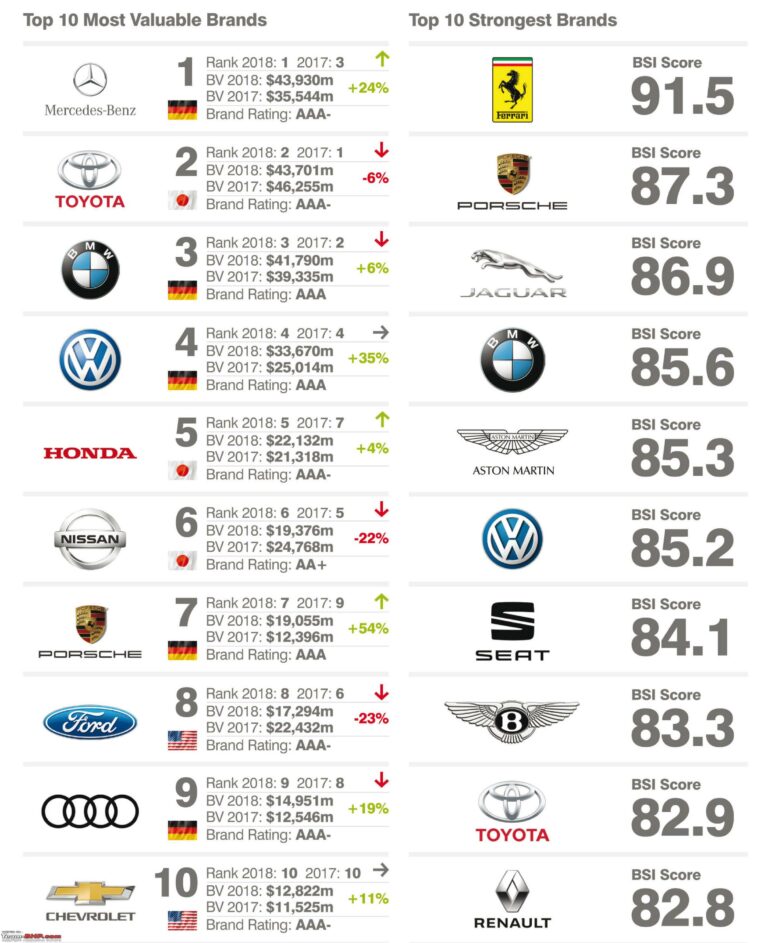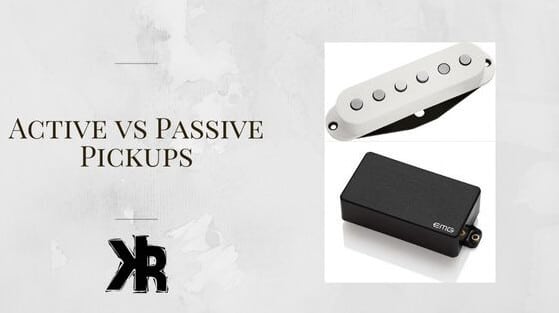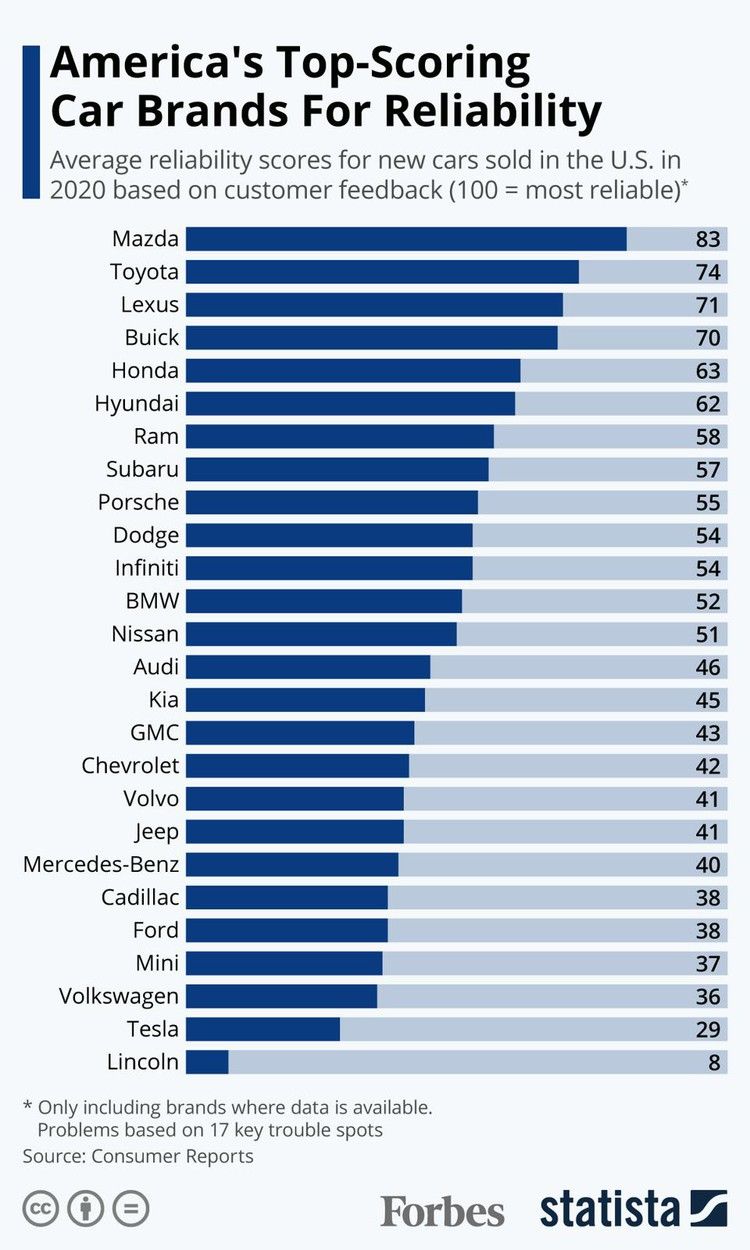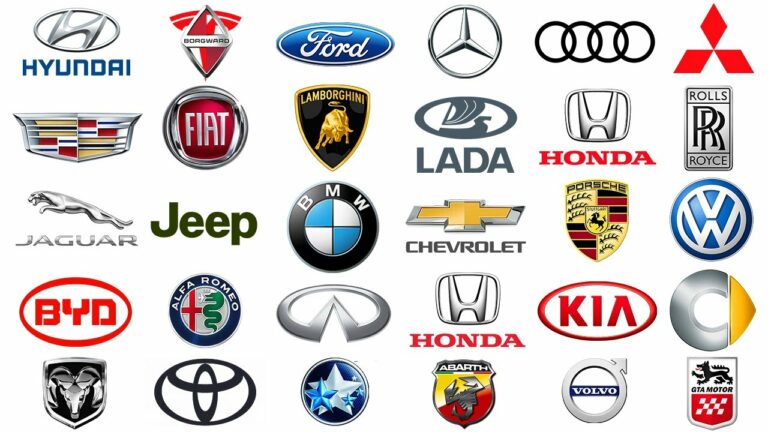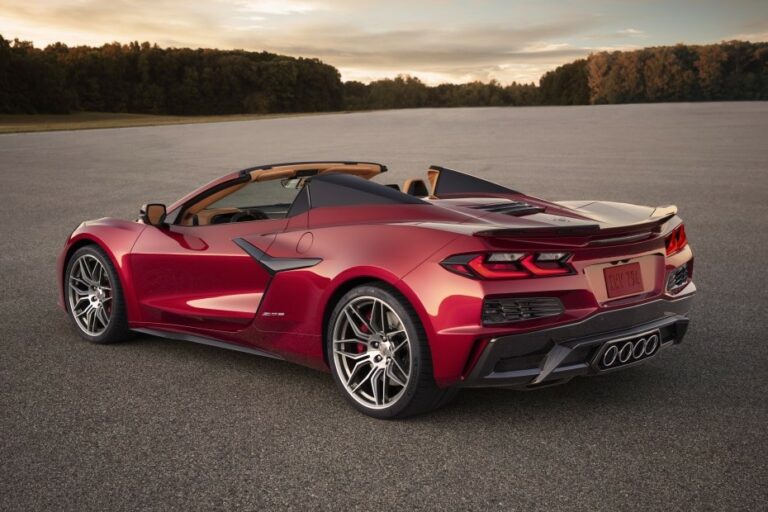Small Car Brands: The Allure of Automotive Niche and Innovation
Small Car Brands: The Allure of Automotive Niche and Innovation cars.truckstrend.com
In an automotive landscape dominated by multinational giants, the term "Small Car Brands" might conjure images of compact, economical vehicles. However, in the context of the global auto industry, "Small Car Brands" refers not to the size of the cars they produce, but to the size and scale of the companies themselves. These are the independent, often boutique manufacturers operating with significantly lower production volumes and market shares compared to titans like Toyota, Volkswagen, or General Motors. Far from being insignificant, these nimble enterprises represent the cutting edge of design, engineering, and bespoke craftsmanship, often pushing boundaries that larger, more risk-averse corporations cannot. They cater to niche markets, offering exclusivity, unparalleled performance, specialized utility, or highly personalized vehicles that resonate deeply with discerning enthusiasts and collectors. Understanding small car brands means appreciating the diverse tapestry of the automotive world, where innovation flourishes outside the mainstream, and passion drives every creation.
The Allure of the Niche: Why Small Car Brands Exist and Thrive
Small Car Brands: The Allure of Automotive Niche and Innovation
Small car brands thrive precisely because they are not constrained by the same imperatives as their larger counterparts. While mass-market manufacturers focus on economies of scale, broad appeal, and maximizing unit sales, small brands prioritize specialization, quality, and often, exclusivity. This fundamental difference allows them to:
- Specialize Deeply: Rather than trying to be everything to everyone, small brands excel in specific segments. This could be hypercars (e.g., Koenigsegg, Pagani), lightweight track-day vehicles (e.g., Caterham, Ariel), bespoke luxury tourers (e.g., Morgan), or cutting-edge electric vehicles with unique propositions (e.g., Lucid, Rimac). Their focused approach allows them to pour resources into perfecting a singular vision.
- Embrace Innovation and Agility: Without layers of bureaucracy, small brands can often bring radical designs and new technologies to market faster. They can experiment with unconventional materials, powertrain configurations, or manufacturing processes that would be too risky or expensive for a volume producer. This agility makes them incubators for future automotive trends.
- Prioritize Craftsmanship and Quality: With lower production numbers, many small brands can afford to dedicate more human hours to each vehicle, resulting in exceptional build quality, meticulous attention to detail, and often, extensive hand-finishing. This artisanal approach is a core part of their appeal.
- Cultivate Direct Customer Relationships: Buyers of small brand vehicles often have direct access to the designers, engineers, or even the founders of the company. This personalized experience, from initial consultation to delivery and after-sales support, fosters a strong sense of community and brand loyalty that is rare in mass-market segments.
- Target Unique Demographics: They cater to a clientele that values individuality, performance, heritage, or specific functionalities over brand ubiquity or mainstream features. This niche focus allows them to command premium prices for their highly specialized products.

Categories of Small Car Brands
Small car brands are incredibly diverse, but they can generally be grouped into several distinct categories based on their primary focus and offerings:
- Boutique Performance & Luxury: These brands produce ultra-exclusive, high-performance, or luxury vehicles in very limited numbers. They often push the boundaries of automotive engineering and design, offering unparalleled speed, exotic materials, and bespoke customization. Examples include Koenigsegg, Pagani, Rimac, Bugatti (though now part of a larger group, it operates as a distinct, low-volume brand), and Morgan.
- Niche Electric Vehicle (EV) Startups: As the automotive world shifts to electrification, numerous agile startups have emerged, aiming to challenge incumbents with innovative EV platforms, unique designs, or specialized capabilities. While some, like Tesla, have grown into giants, others remain relatively small and focused on premium or specific segments. Examples include Lucid Motors, Rivian (initially small, now growing), Aptera, and Canoo.
- Bespoke & Track-Focused Manufacturers: These brands specialize in lightweight, often minimalist vehicles designed for pure driving enjoyment, particularly on track. They prioritize raw performance, handling, and driver engagement over creature comforts. Examples include Caterham (known for its Lotus Seven derivatives), Ariel (Atom, Nomad), and BAC (Mono).
- Revival Brands & Heritage Specialists: Some small brands are dedicated to resurrecting iconic names or producing vehicles that embody a specific automotive heritage. They combine classic aesthetics with modern engineering. A notable example is the new DeLorean Motor Company aiming to revive the iconic DMC-12, or Gordon Murray Automotive, building spiritual successors to legendary vehicles like the McLaren F1.
- Specialty Off-Road/Utility: While rare, some small brands focus on highly capable, rugged vehicles for specific off-road or utility applications, often inspired by classic designs but updated with modern technology. The Ineos Grenadier, inspired by the original Land Rover Defender, is a prime example.

The Benefits of Choosing a Small Car Brand Vehicle
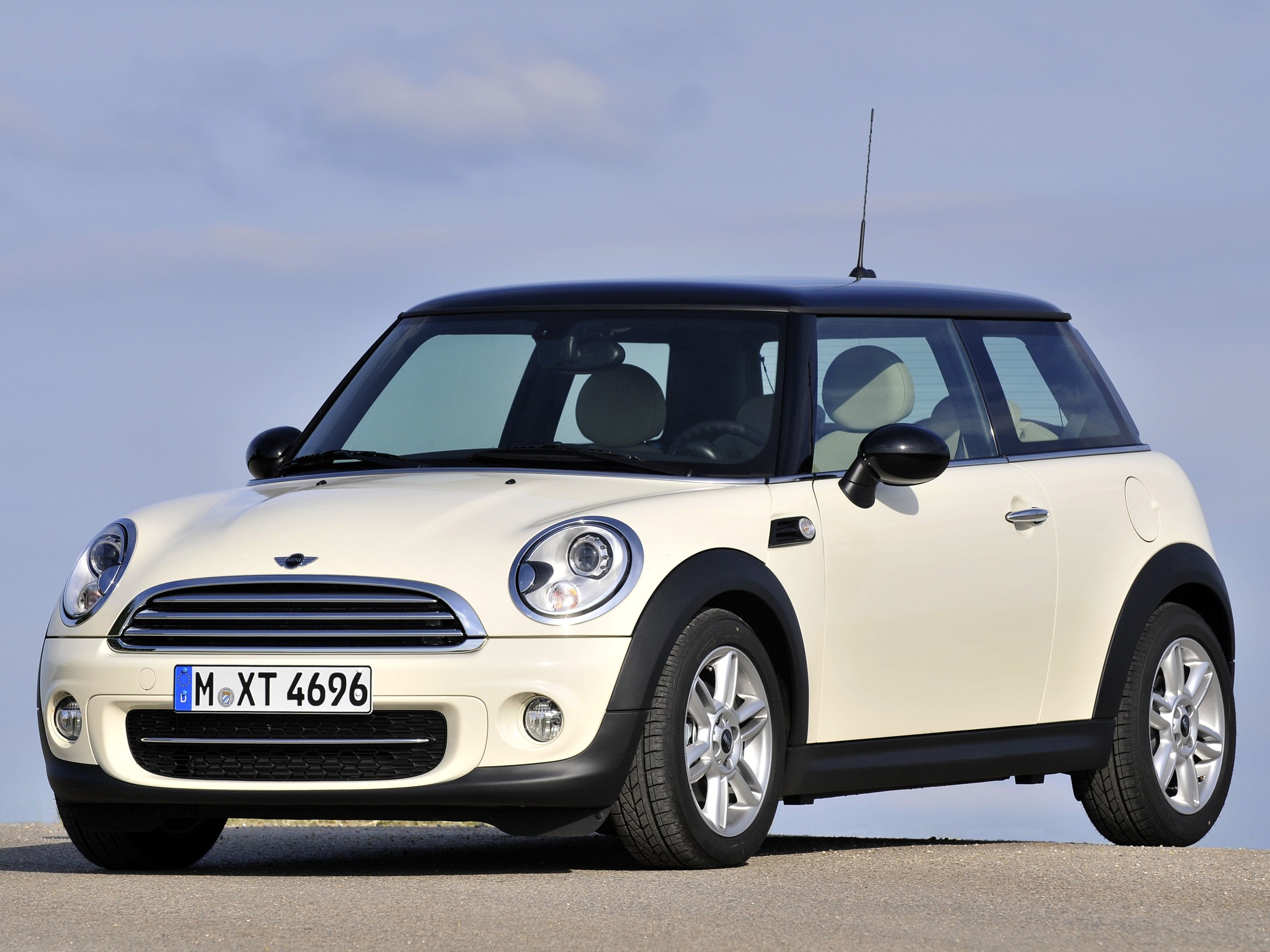
Opting for a vehicle from a small car brand offers a unique set of advantages that go beyond mere transportation:
- Exclusivity and Individuality: Owning a vehicle from a small brand means you’re part of an elite club. These cars are rare, ensuring you stand out from the crowd and possess something truly unique.
- Superior Build Quality and Attention to Detail: Due to lower production volumes, many small brands employ artisanal techniques and meticulous quality control, resulting in vehicles with an exceptionally high standard of finish and craftsmanship.
- Cutting-Edge Innovation and Design: Unburdened by corporate constraints, small brands often pioneer new technologies, materials, and design philosophies, making their vehicles showcases of automotive advancement.
- Stronger Community and Brand Identity: Owners of small brand vehicles often form tight-knit communities, sharing a passion for their unique cars and benefiting from direct engagement with the brand itself.
- Potential for Investment/Collector Value: Given their rarity and often iconic status, many vehicles from small car brands appreciate in value over time, making them potentially sound investments for collectors.
- Unfiltered Driving Experience: For performance-oriented brands, the focus is purely on the driving experience, often offering a raw, visceral connection between driver and machine that is diluted in mass-produced vehicles.
Challenges Faced by Small Car Brands
Despite their unique advantages, small car brands navigate a landscape fraught with significant challenges:
- Limited Production Capacity and Scalability: Scaling up production is incredibly difficult and capital-intensive. This limits their market reach and revenue potential, keeping them niche by necessity.
- Higher Unit Costs: Without the economies of scale enjoyed by large manufacturers, each vehicle produced by a small brand inherently costs more to manufacture, leading to higher retail prices.
- Marketing and Distribution Hurdles: Competing for attention against multi-billion-dollar marketing budgets is tough. Establishing a robust global sales and service network is also a massive undertaking.
- Funding and Investment Challenges: Securing sufficient capital for R&D, manufacturing facilities, and marketing is a constant struggle, often requiring significant private investment or pre-orders.
- After-Sales Service and Parts Availability: Servicing highly specialized vehicles can be challenging. Parts may be bespoke, expensive, and require long lead times, and the service network is typically very limited.
- Regulatory Compliance: Meeting stringent safety, emissions, and homologation standards in various markets is incredibly costly and complex for low-volume manufacturers, often requiring significant engineering and testing.
- Brand Recognition and Trust: Building a reputation for reliability and quality from scratch takes time, especially when competing with century-old established brands.
How to Approach Purchasing from a Small Car Brand
Acquiring a vehicle from a small car brand is a distinct process that requires careful consideration:
- Thorough Research: Investigate the brand’s history, financial stability, past models, and owner reviews. Understand their production philosophy and what makes them unique.
- Understand Lead Times and Customization: Many small brand vehicles are built to order, meaning significant waiting periods. Clarify the order process, customization options, and expected delivery timelines.
- Assess After-Sales Support: Inquire about warranty coverage, service networks (often limited to a few specialist centers or mobile technicians), and parts availability. Understand what support you can expect post-purchase.
- Financing Considerations: Traditional auto loans might not apply to ultra-high-value or niche vehicles. Be prepared for specialized financing options or a cash purchase.
- Test Drive (If Possible): Opportunities for test drives might be limited to specific events or factory visits. If possible, experience the vehicle firsthand to ensure it meets your expectations.
- Be Prepared for Higher Costs: Beyond the purchase price, expect higher insurance premiums, specialized maintenance costs, and potentially increased depreciation if the brand struggles.
- Join Owner Communities: Engaging with current owners can provide invaluable insights into the ownership experience, potential quirks, and practical advice.
Tips for Owning a Small Car Brand Vehicle
Ownership of a small car brand vehicle is a unique journey that comes with its own set of considerations:
- Find Specialist Mechanics: Standard dealerships often lack the expertise or tools to service these highly specialized vehicles. Identify independent specialists or authorized service centers well in advance.
- Embrace the Community: Connect with other owners. These communities are a wealth of knowledge, support, and shared passion, often leading to exclusive events and networking.
- Plan for Parts Availability: Some bespoke parts might have long lead times or require custom fabrication. Be proactive in sourcing critical spares if possible, or understand the implications.
- Consider Storage and Security: Given their rarity and value, proper storage (climate-controlled, secure) and comprehensive insurance are crucial.
- Enjoy the Unique Experience: These vehicles are not just cars; they are statements of engineering, art, and passion. Drive them, cherish them, and appreciate the craftsmanship that went into their creation. Be prepared for attention and conversations wherever you go!
Practical Advice and Actionable Insights
For anyone considering a small car brand vehicle, the key takeaway is due diligence combined with a healthy dose of realistic expectation. Do not approach this purchase like a mass-market car. Research every facet of the brand and the specific model. Understand that while you gain exclusivity and unparalleled quality, you might sacrifice some convenience, widespread service accessibility, and predictable depreciation. Embrace the journey of ownership, be prepared for unique quirks, and most importantly, appreciate the passion and innovation that defines these remarkable automotive creations. They represent the dreamers and the risk-takers of the automotive world, pushing boundaries and offering experiences that transcend mere transportation.
Concluding Summary
Small car brands, though operating on a vastly different scale than industry titans, play an indispensable role in the automotive ecosystem. They are the crucibles of innovation, the guardians of bespoke craftsmanship, and the purveyors of unique driving experiences. From hyper-exclusive performance machines to meticulously handcrafted luxury vehicles and pioneering electric ventures, these brands cater to a discerning clientele seeking individuality and engineering excellence. While they face significant challenges in production, distribution, and funding, their agility, specialization, and direct connection with customers allow them to thrive. Choosing a vehicle from a small car brand is more than a purchase; it’s an investment in a unique piece of automotive art and a gateway to a passionate community, embodying the diverse spirit and boundless creativity of the global car industry.
Example Pricing Table: Illustrative Small Car Brands
This table provides illustrative starting prices for various models from a selection of prominent small car brands. Prices are highly variable based on customization, options, market, and economic factors, and are subject to change without notice. They are presented in approximate USD and reflect a snapshot of typical base pricing at the time of writing.
| Brand | Model | Type | Starting Price (Approx. USD) | Key Characteristic |
|---|---|---|---|---|
| Koenigsegg | Jesko Absolut | Hypercar | $3,000,000+ | Extreme performance, Swedish engineering, bespoke |
| Pagani | Utopia | Hypercar | $2,700,000+ | Artistic design, bespoke craftsmanship, V12 power |
| Morgan | Plus Four | Classic Sports Car | $80,000+ | Hand-built, traditional British styling, modern chassis |
| Caterham | Seven 310 | Lightweight Track Car | $40,000+ (kit) / $60,000+ (built) | Pure driving experience, minimalist, customizable |
| Ariel | Atom 4 | Track-Focused Sports Car | $80,000+ | Exposed chassis, incredible power-to-weight, raw performance |
| BAC | Mono R | Single-Seater Track Car | $250,000+ | Road-legal single-seater, ultimate driver focus |
| Lucid Motors | Air Pure | Luxury Electric Sedan | $70,000+ | Longest EV range, rapid charging, elegant design |
| Ineos Grenadier | Station Wagon (Entry Model) | Rugged 4×4 SUV | $70,000+ | Off-road capability, utilitarian design, built to last |
| Gordon Murray Automotive | T.50 | Hypercar | $3,000,000+ | V12, manual gearbox, fan car aerodynamics, driver-focused |
Note: Prices do not include taxes, delivery charges, or extensive customization options, which can significantly increase the final cost.
Frequently Asked Questions (FAQ) about Small Car Brands
Q1: Are vehicles from small car brands reliable?
A1: Reliability can vary significantly. Many small brands, especially those focused on luxury or performance, use high-quality components and meticulous assembly, leading to robust vehicles. However, due to lower production volumes, they might not have undergone the same extensive long-term testing as mass-market cars, and specialized parts could be harder to source if issues arise. Researching specific models and brand reputations is crucial.
Q2: Is it hard to get parts and service for small car brands?
A2: Generally, yes. Unlike major brands with vast dealership networks, small car brands often have limited service centers, sometimes requiring shipping the car or flying in specialist technicians. Parts can be bespoke, expensive, and have long lead times, as they are produced in smaller batches or even custom-made. Owners often need to rely on a network of independent specialists.
Q3: Do small car brand cars hold their value well?
A3: This depends heavily on the specific brand, model, and market conditions. Highly exclusive, limited-production models from reputable small brands (e.g., Pagani, Koenigsegg, certain Morgan models) can appreciate significantly, especially if they become collector’s items. However, less established or niche brands might experience typical or even accelerated depreciation, particularly if they face financial difficulties or if their models don’t gain widespread appeal.
Q4: Why are small car brand cars so expensive?
A4: The high cost stems from several factors: lack of economies of scale (each unit costs more to produce), extensive use of expensive, lightweight, or exotic materials, meticulous hand-craftsmanship, low production volumes, high R&D costs spread over fewer units, and the premium associated with exclusivity and bespoke customization.
Q5: Are small car brands a good investment?
A5: For a select few, yes, particularly ultra-rare hypercars or iconic heritage models. For most, however, they are a passion purchase rather than a guaranteed financial investment. While some may appreciate, others will depreciate. Any potential for investment should be secondary to the desire to own and experience such a unique vehicle. Always consult with a financial advisor and automotive market expert if considering it purely as an investment.

